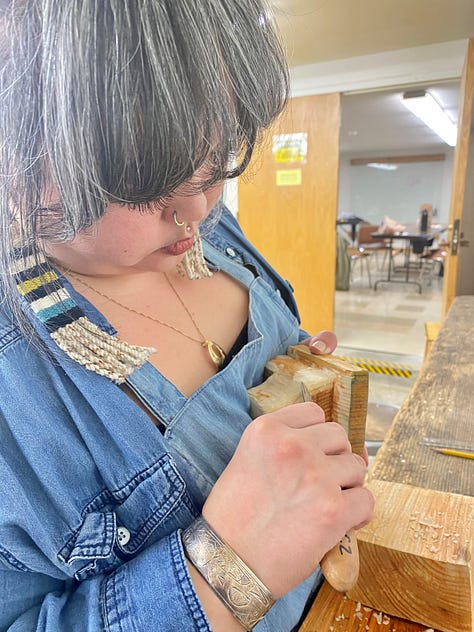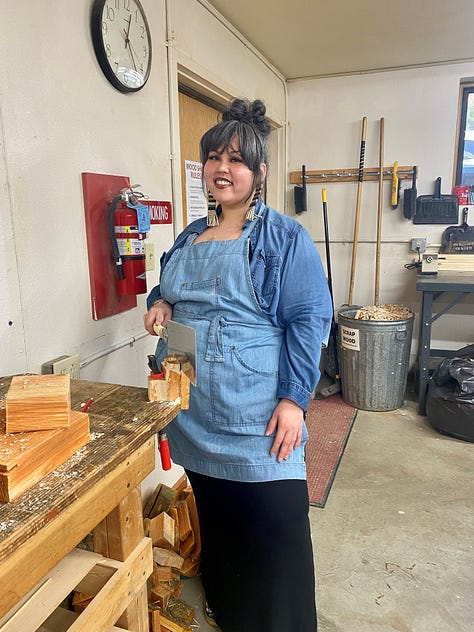This post is part of the accompanying tips, resources, interviews with experts, and stories of recovery included in the exclusive serialization of Cured: The Memoir.
🎧Listen to the interview:



I am thrilled to bring you this really incredible interview that I did with Cameron Cage about her recovery from traumatic mental illness and psychiatric disorders. She’s a fascinating young woman. We met in a peer recovery specialist training. Peers are those of us who’ve recovered from mental illness who then work to help others in their journey toward recovery.
Cameron, whose tribal Tsimshian name is Kshdelm ‘Ol, Fights the Bear, is part of the Raven Clan and a member of the Tsimshian Nation in Southeast Alaska. Her mental health recovery began when she got sober from alcohol and was diagnosed in her thirties with bipolar II disorder and ADHD. Starting medication, talk therapy, and learning traditional arts were instrumental in healing mentally, physically, and spiritually. Being open about mental illness and recovery is the torch she carries for herself and hopes that others can see it as possible for themselves as well.
In addition to being an artist, Cameron is the workforce development manager of education and training at the Ketchikan Indian community in Alaska.
Sometimes we think of recovery as being a kind of completion; it isn’t for many people. Cameron says she almost didn’t show up because her ADHD and bipolar disorder had, as she puts it, ballooned. She felt like she couldn’t be here and talk about recovery given that she was struggling. But we can struggle and show up.
We have to remember that recovery will look different for everyone. Cameron’s experience is so different from mine, which I love. She identifies with diagnoses whereas I do not.
There are so many ways to go about recovery, and the more we talk about it, the more stories we hear, the more we'll be able to bring the possibility of recovery to everyone.
Quick apology as the sound quality isn’t perfect. Still, this is so worth the listen. Please enjoy my interview with the amazing Cameron Cage.
Readers like you make my work possible. Support independent journalism by becoming a paid subscriber for $30/year, the equivalent price of a hardcover book.
Visit the Table of Contents and Introduction of Cured:
Find more resources for mental health recovery.
Read the prequel to ‘Cured,’ ‘Pathological’ (HarperCollins):






Mental illness and recover looks different according to every patient. That's the human nature of things.
Some recover using medication, others using art or other forms of expression, others from social support. But all of them need 3 things:
-acceptance
-guidance
-facing and winning the war with stigma
So many good nuggets in this interview. Two in particular near the end.
"Maybe I can't do it right now, but I want to, so I'm going to give myself the tools for when I am ready." Kshdelm 'Ol (on buying carving tools for future use.)
AND:
"Once you've stepped outside the hopelessness, you are recovering." Sarah Faye. (on looking at recovery in a different way.)
Candace is a really brave young woman. I really appreciated her honesty and vulnerability. It gives me hope one can still be recovering and yet also help so many people at the same time. Thanks to you both for sharing.